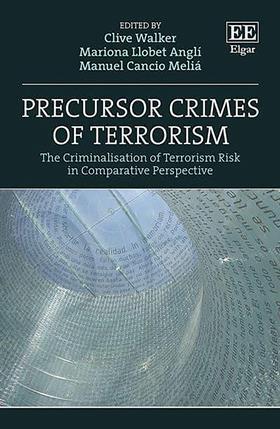The Legal Aid Market: challenges for publicly funded immigration and asylum representation
Jo Wilding
£80 (hardcover), Policy Press
★★★★✩
Jo Wilding spent time in Iraq in the early 2000s before training and practising as a barrister with Garden Court Chambers. She is an author and researcher who published the report Droughts and Deserts: A report on the immigration legal aid market in 2019, highlighting the lack of provision in parts of the country, and gave evidence to the recent All-Party Parliamentary Group on Legal Aid.
In this work, Wilding examines the broken economic structure of the legal aid system as it relates to asylum and immigration. She has produced a well-crafted exposé of the system’s inadequacies.
The first chapter provides a concise summary of the evolution of asylum and immigration law, the current legal aid funding regime, and the rise and fall in the number of legal service providers, which helps to explain why the system currently works as it does. Business case studies from law firms and not-for-profits that bring the issues to life follow in the next chapter.
Understandably, the focus on representation means that the book leans towards the legal supply-side, but to understand any market you also need to understand demand, so some indication of the market from a macroeconomic perspective would have been helpful. For example, how does the number of asylum seekers arriving each year compare to matter starts?
Wilding draws on a solid body of academic research. While informative, this sometimes comes across as theoretical and remote from the diverse range of users whom I encounter.
Taxpayers are acknowledged as the ultimate clients, but there is limited exploration of the need for overall control of expenditure and the interplay with other publicly funded budgets. For example, the longer an asylum seeker is within the immigration system and is prevented from working and paying taxes, the more they cost the public purse.
Wilding breaks down and explores the numerous challenges facing legal service providers.
‘Broken swings and rusty roundabouts’ explores the financial viability of the work, and difficulties in reconciling quality with providing sufficient access in a market where there is only one buyer and multiple sellers.
Wilding clearly lays out the inefficiencies caused by the poor design of the system and operations at all levels and highlights how ticking the right boxes is not the same as meeting client needs, especially if poor advice leads to appeals or fresh claims. This section provides a great blueprint for anyone looking to improve the system.
‘Droughts & deserts’ draws on the author’s previous research highlighting how many areas of the country have no or very limited legal aid provisions, how firms decide to prioritise the work that they take on and how barristers prioritise the solicitor firms they are happy to work with. She also explores why supply has not increased to meet demand.
Wilding does not flinch from addressing the issues around the varying quality of legal services provided to asylum seekers resulting from lack of training and supervision, and the existence of poor-quality law firms alongside those trusted by clients and the Home Office.
Chapter 7, ‘No Choice, No Voice, No Exit’, explains how asylum seekers are unable to exercise the usual strategies available to members of the public who are poorly served in public services. While there is no legal aid provision in some geographical areas, even where there is more than one provider, there is no meaningful information enabling people to make a choice (not all asylum seekers read Chambers and Partners or Legal 500).
The author also examines the problems and tensions that arise from the ‘command and control’ system of compliance and monitoring, when a system is designed to guard against deliberate misconduct rather than facilitate the work.
Wilding concludes with a chapter about ‘Why we need to think about systems’, pointing out that: ‘Guesswork is a bizarre way of setting prices, at least when actual cost data could reasonably be obtained by paying hourly rates for a trial period or to certain trusted advisers.’
For anyone who needs or wants to understand many of the challenges concerning legal aid within the asylum and immigration system, this is a really useful read.
The government’s Migration Transparency statistics show there were 125,000 asylum cases in the system in June 2021 – double the number reported in 2014 – so this book shines a spotlight on the enduring difficulties and inconsistencies that need to be addressed.
Sue Bramall is managing director of Berners Marketing, a member of the Law Consultancy Network and a volunteer with Sanctus St Mark
Precursor Crimes of Terrorism: the criminalisation of terrorism risk in comparative perspective
Clive Walker, Mariona Llobet Anglí, Manuel C Meliá (editors)

£115, Edward Elgar Publishing
This collection of monographs from respected academics and practitioners assesses the growth, effects and effectiveness of precursor crimes of terrorism – the criminalisation of funding, planning, encouraging, preparing or glorifying terrorist acts – in different jurisdictions. Its analysis reveals the limitations of such offences in practical matters, and their effects on the rights of citizens.
































No comments yet